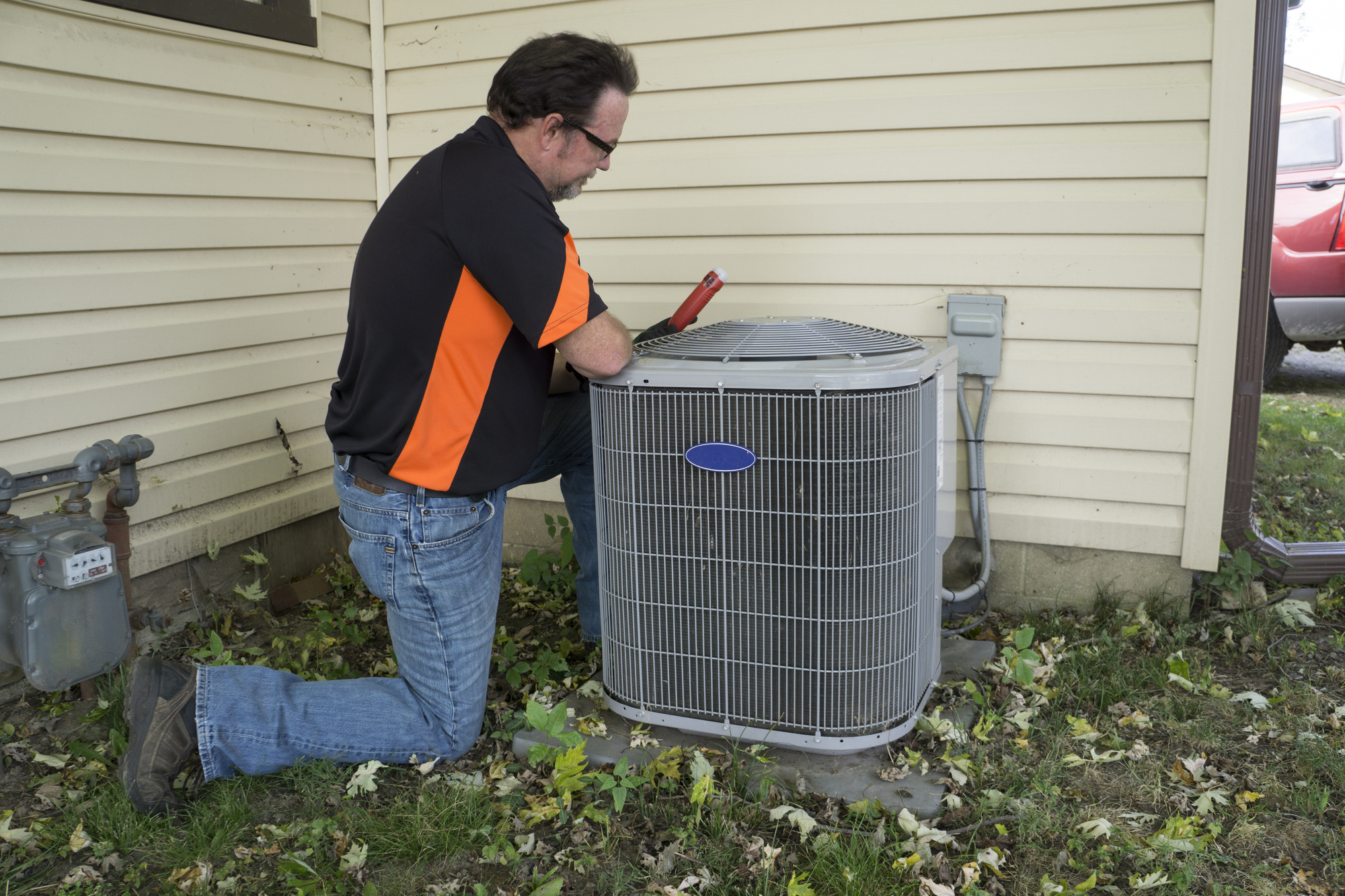
Regular Maintenance is essential to the longevity of any HVAC system.
If you own a home, chances are, you own an air conditioning system, or at least a furnace or boiler. These systems can provide many years of trouble-free service, provided they are maintained properly.
How many years? Well, the average air conditioner or furnace is designed with a 15-year design life in mind. This is 15 years with regular maintenance. They may last only half as long - or far less - if neglected or abused. You may be able to get an additional 5-10 years out of a system if it is well maintained. However, usually there reaches a point where it is cheaper and easier to just install a new system than to keep patching together an older one.
What sort of maintenance do these systems require? In addition to cleaning and changing filters, there is not a lot, but what there is, is important.
For furnaces, particularly older ones, it is good to check the heat exchanger annually to see if any leaks have developed. If it rusts through or cracks, it can fill your house with carbon monoxide and kill your whole family. So yes, regular maintenance is important. Even newer, stainless steel heat exchangers can crack over time, so it is important to have the system checked at least annually, before the heating system.
With air conditioning systems, the problem is often leaks. Leaks in the refrigerant lines can result in the system going low on charge, which means it will lose cooling capacity. You won't notice this until the hottest day of the year (usually when you have company) on a holiday weekend. And guess what? No one will be available then to come out and fix it. An annual service check, including a charge level check, can avoid this problem, particularly when you have an older system which may have slow leaks.
And as I have noted before, in some cases, homeowners run A/C systems until they burn out, rather than call a technician for a simple $150 recharge call. Once the system runs low on charge, if you keep running it, it will burn up the compressor. So if your air conditioner isn't making cold, shut it down and call for service. Letting it run on and on isn't going fix the problem, but create a new, more expensive one for you.
I have used service contracts on all my homes, including rental properties. I usually have the technician service the furnace in the fall and the A/C in the spring, when they are not busy, so the tenants won't call me on July 4th to complain about no A/C or on Christmas to complain about no heat. The cost of the service contract is often less than the cost of even one service call, so it often works out for the best.
Some companies provide "priority" service for their service contract customers, so if you do have a problem on the first hot day, you move to the head of the line (as opposed to the guy who is just speed-dialing every HVAC tech in the book). Others offer discounts on parts and labor for repairs, while others cover repairs as part of the contract. Read the contract and understand what you are paying for before you sign, of course.
If you are not handy with tools and don't understand how these systems work, then it really behooves you to have a service contract on your HVAC systems. Ironically, it is often these very sorts of people who resist getting a service contract or calling for service when the system is not working properly. Fearful of the unknown (and a "high service bill") they avoid having their systems serviced on the premise that they are saving money.
I guess this attitude is like the fellow who never goes to the Doctor, for fear he will be told he is sick, or given a huge bill. When he finally goes to the emergency room, well, bad things have happened, and it is too late to cure them.
Rather than take the "ignorance is bliss" approach, I would suggest getting a service contract and taking a proactive, maintenance approach. Not only will your equipment last longer, it will be more reliable and have fewer interruptions in service.


